Shortly after announcing an agreement for normalized ties with Israel, Bahrain's King Hamad bin Isa bin Salman Al Khalifa on Friday evening stressed the importance of reaching a comprehensive peace agreement with the Palestinians.
It was a message repeated by Bahrain's foreign minister and advisor to the king, Khalid bin Ahmed Al Khalifa.
5 View gallery
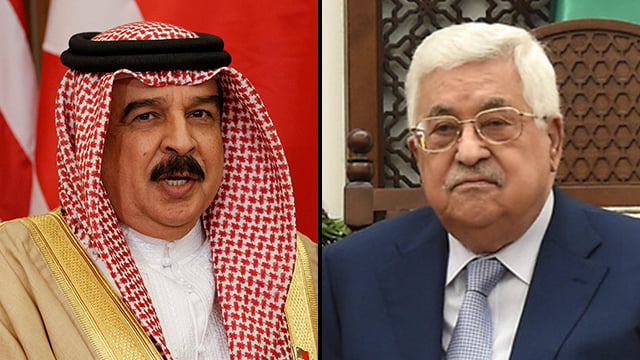

Bahrain's King Hamad bin Isa bin Salman Al Khalifa, left, and Palestinian President Mahoud Abbas
(Photos: Getty Images, AP)
"The agreement is the best way to ensure the rights of the Palestinians," Al Khalifa said.
"The agreement conveys a message to the people of Israel that comprehensive peace with the Palestinians is the best way and a real interest for their future."
The Palestinian Authority, however took a different view of the announcement, issuing a statement slamming the decision by Bahrain.
The agreement is a setback for Palestinian leaders, who have urged Arab nations to withhold recognition until they have secured an independent state.
The principle of normalized ties with the Arab world in return for full Israeli withdrawal from all the territories it captured in the 1967 Six-Day War is a mainstay of the 2002 Saudi-led Mideast peace initiative, which was again endorsed at the Arab League meeting in Cairo this week.
5 View gallery
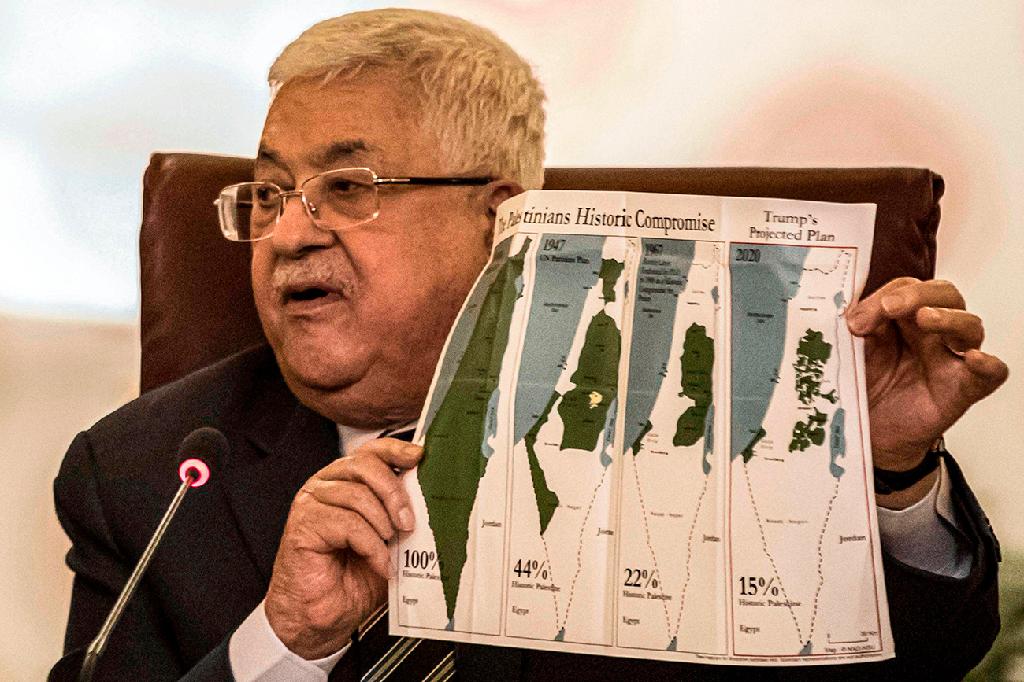

Palestinian President Mahmoud Abbas slamming the U.S. Middle East peace plan during an Arab League summit in Cairo earlier this year
(Photo: AFP)
"We condemn the statement and see it as a betrayal of Jerusalem and of the Palestinian issue," the PA said in a statement, echoing languaghe it used to condemn a similar agreement between Israel and the United Arab Emirates last month.
"The Palestinian Authority sees the move as a very dangerous one, as it thwarts the Arab peace initiative and contradicts international legitimacy. The PA calls on Bahrain to withdraw from its declaration, and emphasizes it is unwilling for any Arab country to act on its behalf. "
Bahrain will sign a declaration with Israel along with the UAE in a ceremont at the White House on September 15.
Like the UAE agreement, the Bahrain-Israel deal will normalize diplomatic, commercial, security and other relations between the two countries.
5 View gallery
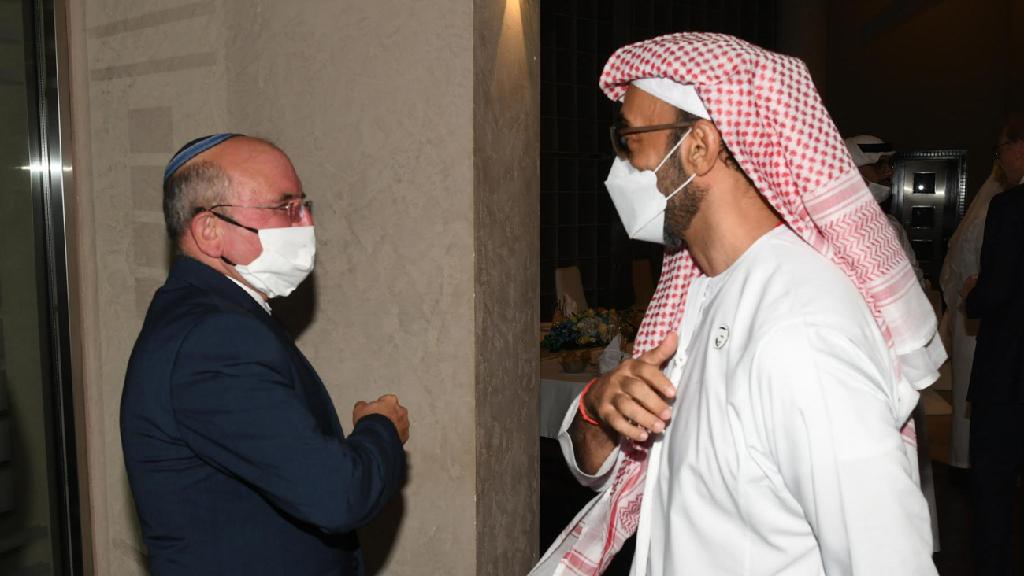

National Security Advisor Meir Ben Shabbat meeting with his Emirati counterpart Tahnoun bin Zayed Al Nahyan in Abu Dhabi last week
(Photo; GPO)
Bahrain, along with Saudi Arabia, had already dropped a prohibition on Israeli flights using its airspace. Saudi acquiescence to the agreements has been considered key to the deals.
The PA also said Friday night it has recalled its ambassador to Bahrain for consultations.
The Palestinians have seen a steady erosion in once-unified Arab support -- one of the few cards they still held as leverage against Israel -- since Trump began pursuing an unabashedly pro-Israel agenda.
"This is another stab in the back of the Palestinian cause, the Palestinian people and their rights," said Wasel Abu Yousef, a senior Palestinian official.
"It is a betrayal of Jerusalem and the Palestinians... We see absolutely no justification for this free normalization with Israel," he said.
5 View gallery
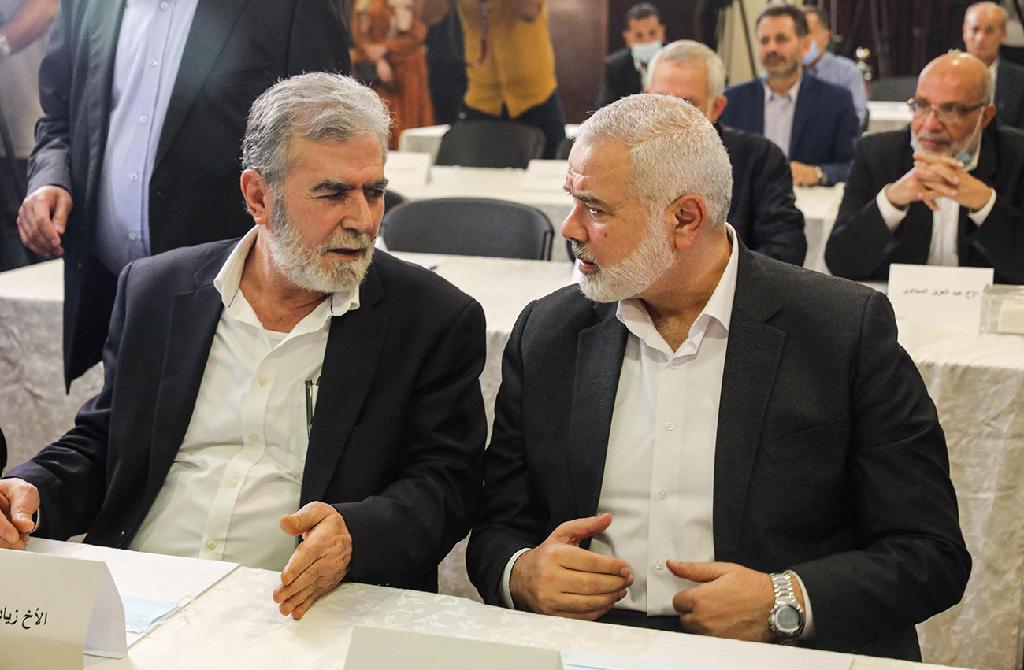

Islamic Jihad head Ziyad al-Nakhalah, left, and Hamas political leader Ismail Haniyeh meeting in Beirut this month
(Photo: AFP)
The Hamas terror group, which has long been a rival faction to the Fatah movement that dominates the PA, also expressed dissatisfaction with Bahrain's announcement.
"The normalization agreement means that Bahrain is becoming a partner in the 'deal of the century', which constitutes an attack on the Palestinian people," Hamas spokesman Hazem Qassem said, referring to U.S. President Donald Trump's Mideast peace plan unveiled in January.
A senior official in the Islamic Jihad terrorist organization blasted Bahrain's rulers for "following American orders."
The announcement, made jointly by the Bahraini king, Trump and Prime Minister Benjamin Netanyahu, drew a mixed response from other Middle Eastern states.
Egyptian President Abdel Fattah al-Sisi, whose country was the first Arab state to sign a peace agreement with Israel in 1979, said Friday night he appreciates the "important step" of Israel and Bahrain establishing diplomatic relations.
The agreement would help establish "stability and peace in the Middle East, in a way that achieves a just and permanent settlement of the Palestinian issue," Sisi said on Twitter.
5 View gallery
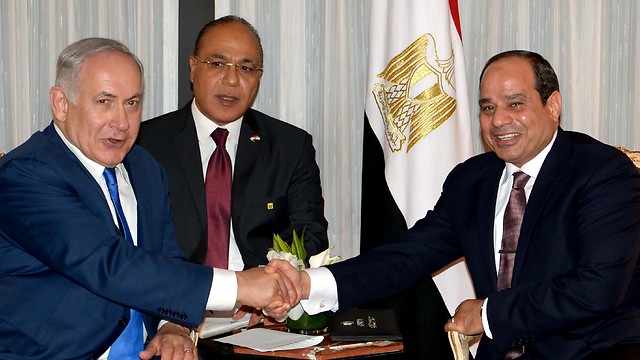

Prime Minister Benjamin Netanyahu meeting with Egyptian President Abdel Fattah al-Sisi on in 2017
(Photo: GPO)
The United Arab Emirates also welcomed the decision, saying it hoped the step would have a positive effect on the climate for peace and cooperation in the region and around the world.
"The move represents a significant step towards an era of security and prosperity ... [and] would expand the scope of economic, cultural, scientific, and diplomatic avenues of cooperation," the UAE foreign ministry said in a statement.
But the foreign minister of Jordan, which signed its own peace agreement with Israel in 1994, said in a statement Friday, that the necessary steps to achieve a fair and comprehensive peace in the region should now come from Israel.
Ayman Safadi said that after the announcement of normalized ties between Israel and Bahrain, Israel should stop all its procedures to undermine the two-state solution, and end the illegal occupation of the Palestinian lands.
The annojncement was also greeted coolly in Tehran, with Hossein Amirabdollahian, a special adviser to Iranian Parliament Speaker Mohammad Bagher Ghalibaf, calling it a great betrayal to the Islamic cause and Palestinians.
"The imprudent leaders in UAE, #Bahrain must not pave the way for the Zionist schemes," he wrote on Twitter.
Bahrain is acutely aware of threats posed by Iran, an anxiety that comes from Bahrain's majority Shiite population, despite being ruled since 1783 by the Sunni Al Khalifa family.
Iran under Shah Mohammad Reza Pahlavi had pushed to take over the island after the British left, though Bahrainis in 1970 overwhelmingly supported becoming an independent nation and the UN Security Council unanimously backed that.
Since Iran's 1979 Islamic Revolution, Bahrain's rulers have blamed Iran for arming militants on the island. Iran denies the accusations, though weapons experts suggest explosives found there bear similarities to others linked to Iran. Israel and Iran view each other as top regional enemies.

